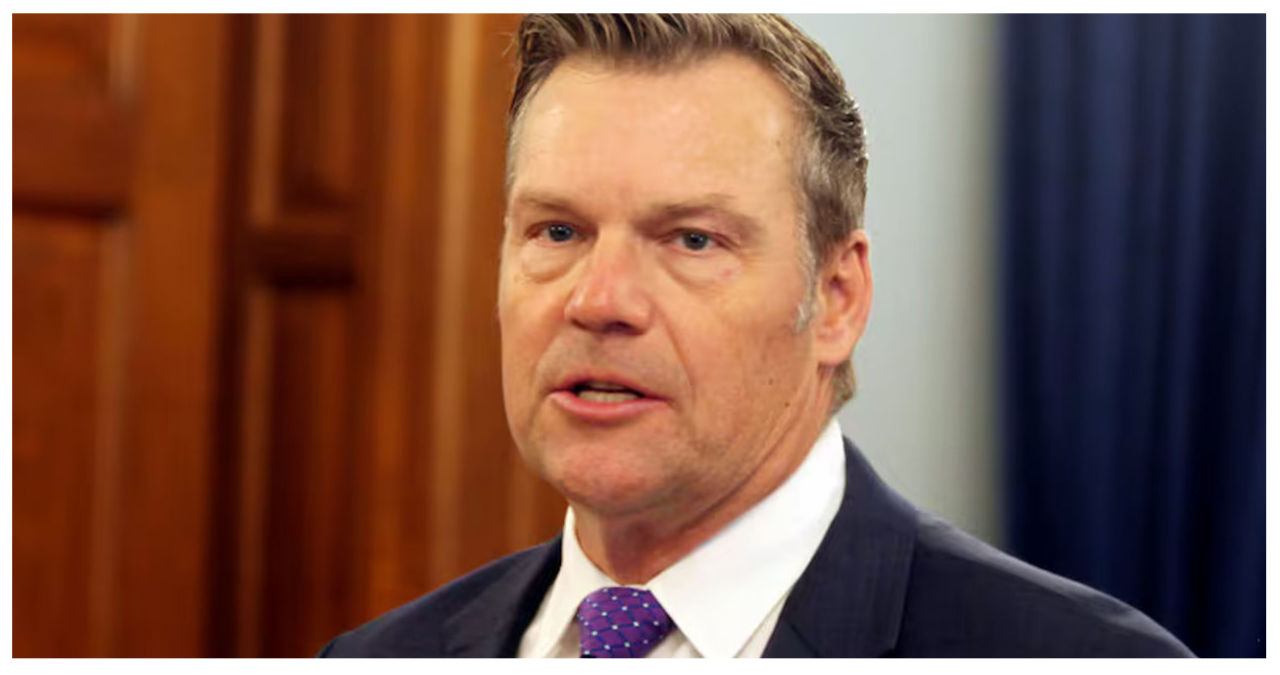A lawsuit has been filed by Republican-led states against the Biden administration in an attempt to halt a new student loan repayment plan. This plan aims to offer a quicker path to loan cancellation and lower monthly payments for millions of borrowers.
In a lawsuit filed on Thursday, 11 states, with Kansas at the helm, argue that Biden exceeded his authority by implementing the SAVE Plan. This plan, which was introduced last year and has already forgiven loans for over 150,000 borrowers, is the subject of contention.
According to the lawsuit, it is argued that the new plan is essentially the same as Biden’s previous attempt at student loan cancellation, which was rejected by the Supreme Court last year. The lawsuit states, “Last time Defendants tried this, the Supreme Court said that this action was illegal. Nothing since then has changed.”
The Education Department has chosen not to provide any comments on the lawsuit. However, it is important to note that Congress granted the department the authority to establish the definitions for income-driven repayment plans back in 1993.
In a statement, the Department emphasized that the Biden-Harris Administration remains committed to assisting borrowers nationwide, despite repeated attempts by Republican elected officials to impede their efforts.
In 2022, Biden unveiled the SAVE repayment plan, as well as a distinct initiative to eliminate up to $20,000 in debt for over 40 million Americans. The cancellation plan faced opposition from Republican states and was ultimately blocked by the Supreme Court. However, the court did not assess the SAVE program, as its details were still being finalized.
The White House hosted a “day of action” to promote the SAVE Plan, coinciding with the filing of a new lawsuit. According to the Biden administration, over 7.7 million borrowers have already enrolled in the plan. Among them, more than 5 million individuals with lower yearly incomes have had their monthly payments reduced to $100 or less.
Kansas Attorney General Kris Kobach has electronically filed a challenge in federal court in Kansas, requesting that any trial be held in Wichita, the state’s largest city. The lawsuit seeks to immediately halt the plan. Alongside Kansas, the suit is supported by Alabama, Alaska, Idaho, Iowa, Louisiana, Montana, Nebraska, South Carolina, Texas, and Utah.
During a news conference at the Kansas Statehouse, Kobach expressed his strong disapproval of the president’s actions, stating, “In a completely brazen fashion, the president pressed ahead anyway. The law simply does not allow President Biden to do what he wants to do.”
Biden has introduced a revised repayment plan that builds upon existing income-based repayment plans offered by the Education Department since the 1990s. These earlier versions were developed by Congress to assist borrowers facing financial difficulties, limiting their payments to a percentage of their income and forgiving any outstanding debt after 20 or 25 years.
The new plan presents even more favorable terms than before, providing borrowers with the opportunity to lower their monthly payments and potentially have their loans forgiven within just 10 years. What sets this plan apart from others is its ability to prevent interest from accumulating, as long as borrowers consistently make their monthly payments.
The provisions of the plan are currently being implemented this year, with the faster path to loan cancellation initially set to take effect later in the summer. However, the Biden administration expedited this benefit and began cancelling loans for certain borrowers in February.
According to Biden, the intention behind the measure is to provide borrowers with more flexibility, allowing them to alleviate the weight of their student loan debt.
The Education Department opted to amend existing plans through federal regulation rather than starting from scratch. This approach was seen by supporters as a strategic move to strengthen the plan’s foundation, with the foresight of potential challenges posed by Republicans.
According to Kobach, the lawsuit claims that Biden should have obtained approval from Congress before implementing such substantial changes.
The states are arguing that Biden’s plan will cause them significant harm in various ways.
The states argue that the generous repayment plan will reduce the motivation for borrowers to enter public service and participate in the Public Service Loan Forgiveness program. They anticipate that this will lead to more state employees leaving their positions, further exacerbating the challenges faced by public schools in recruiting and retaining teachers.
According to the lawsuit, proponents of the plan claim that it will infuse the U.S. economy with a substantial amount of loan relief, necessitating increased efforts by states to combat fraud. The suit asserts that this plan will inadvertently create lucrative avenues for fraudsters to exploit vulnerable student debt borrowers.
If successful, it would essentially eliminate the remaining portion of Biden’s initial endeavor to provide extensive relief for student loans. Following the Supreme Court’s obstruction of his broader plan last year, Biden directed the Education Department to develop a new strategy based on a different legal rationale. Presently, the agency is actively pursuing a more constrained approach towards widespread loan cancellation.



